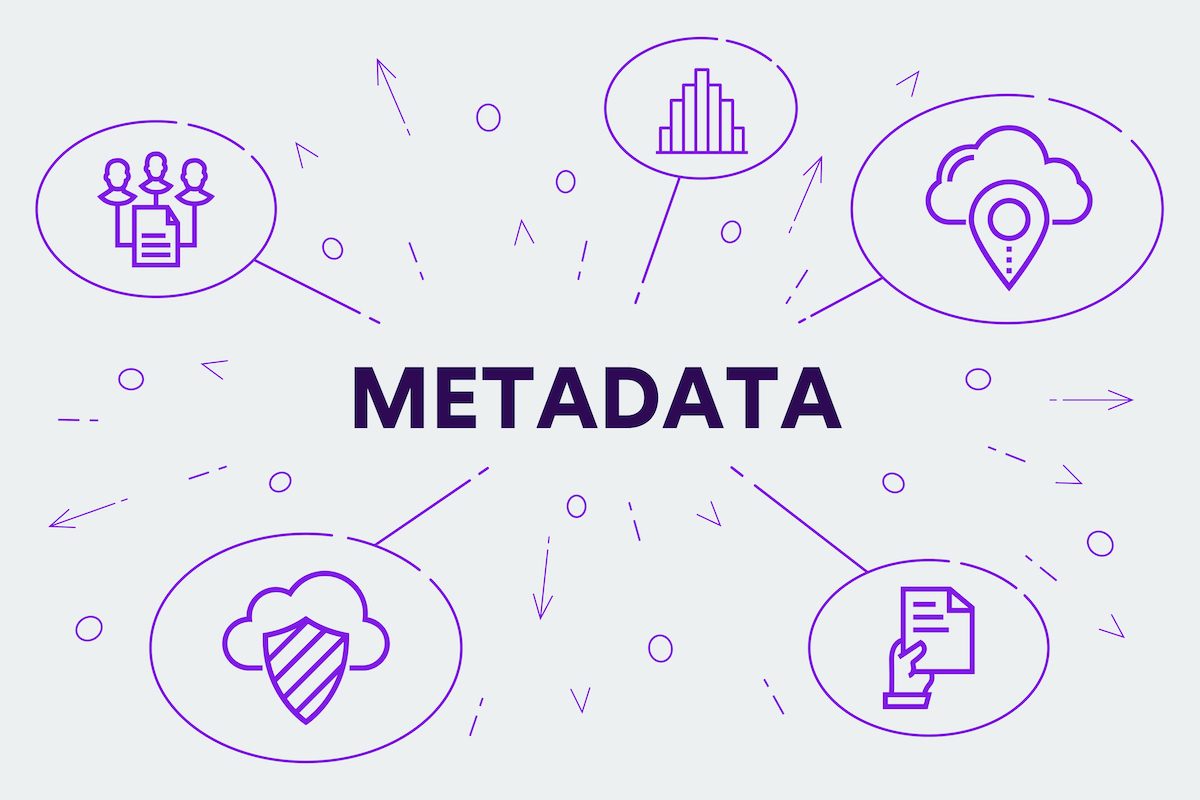
Metadata is a special kind of data that provides information about a single piece of data. It is very important because it helps to understand the big picture, provides context, and makes data management and organisation much easier. Its importance for data analysis is very high because metadata help to find out much more information about the data itself, which allows more accurate analysis. Now that we’ve got the broad outline of the concept, let’s get to the details.
What is metadata?
The prefix meta is of Greek origin, which refers to something beyond. For example, meta-language refers to words and phrases used to refer to the language itself. Data in this context refers to objects that, when processed, can provide us with valuable information. Data is therefore nothing more than potential information which, once processed, can become valuable information.
Metadata is a summary of basic information about data, making it easier to use and find. What can metadata contain? For example, it can include the origin, and how the data was obtained, i.e. how it was sampled.
Types of metadata
- Descriptive metadata: these are the simplest types of metadata. Their purpose is to provide descriptive information about the object resource and to aid detection and retrieval. For example, data catalogues rely on descriptive metadata for searching.
- Administrative metadata: administrative metadata is related to the creation and management of a resource. This is a rather large category, within which several subcategories can be distinguished. One subcategory is technical metadata, i.e. technological metadata such as format or size. A separate subcategory is provenance metadata, which is essential for the evaluation of the history of the resource and its authenticity. The third subcategory is preservation metadata, which contains information related to the preservation of the object, such as information about updates. Finally, there are legal metadata, which provides information about intellectual property and security.
- Structural metadata: structural data provide information about the structure of the resource in question and its relationships. They are created to help you create new content and navigate through it. For example, thanks to structural metadata, different documents can be quickly organised according to a given logic.
- Markup language: it is used to capture the logical structure of an object, to mark up certain objects, and to make data catalogues more efficient.
Metadata, in essence, is meta information. Their structured framework is the metadata schema, a language that formulates as a rule the statements that can be made about metadata. Each schema has its own set of elements, or semantics, which is why a metadata schema is often called an element set. Interoperability is an important consideration when choosing the right schema and determines the extent to which metadata can be used by technologies such as business and artificial intelligence. Examples of such metadata schemas are CDWA (for describing cultural works), CC REL (for writing copyright licenses), Exif (provides a tag structure for metadata embedded in digital image files), and MODS (for bibliographic item sets).
Metadata and MicroStrategy
Metadata management is a special issue when it comes to analytical software. It could be said that MicroStrategy, also distributed by Bixpert, is the only analytical software that can manage metadata in a consistent way across the entire business intelligence system.
Indeed, metadata allows objects to be shared between MicroStrategy applications. This is possible by providing a central repository for all object definitions.
Learn about MicroStrategy’ s data analytics and mobility platform and transform your organization into an intelligent enterprise.


